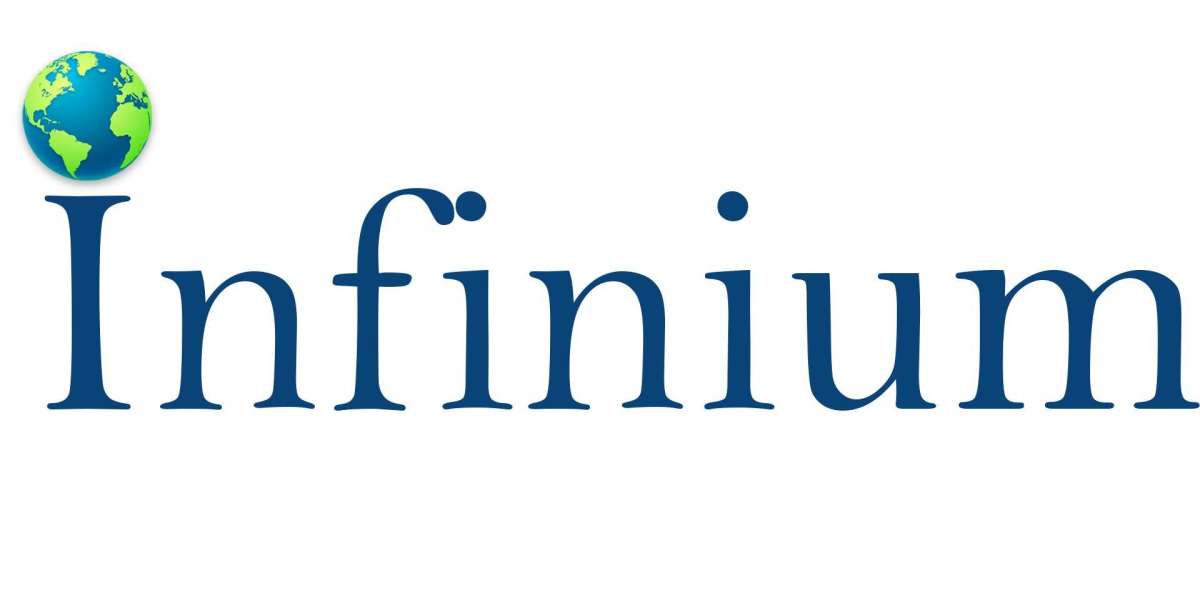The market study covers the Global 5G Chipset Market crosswise segments. It purposes at estimating the market size and the growth prospective of the market segments, such as supplier, application, organization size, and business vertical. The study also includes a detailed competitive analysis of the key players in the market, along with their enterprise profiles, key observations related to product and industry offerings, new developments, and key market plans.
Infinium Global Research analyses the 5G chipset market will exhibit a CAGR of 30.29% for the forecast period of 2023-2030 and is likely to reach the USD 283.73 billion by 2030.
To Know More Request Sample of this Report@ https://www.infiniumglobalresearch.com/form/437?name=Sample
A complete view of 5g chipset industry is provided based on definitions, product classification, applications, major players driving the Global 5g chipset market share and revenue. The information in the form of graphs, pie charts will lead to an easy analysis of an industry. The market share of top leading players, their plans and business policies, growth factors will help other players in gaining useful business tactics.
The forecast for Global 5g chipset market information is based on the present market situation, growth opportunities, development factors, and opinion of the industry experts. An in-depth analysis of the company profiles, 5g chipset market revenue at country level and its applications is conducted. The analysis of downstream buyers, sales channel, raw materials, and industry verticals is offered in this report.
5G Chipsets: Powering the Next Generation of Connectivity
At the heart of every 5G device lies a tiny powerhouse - the 5G chipset. This isn't just any chip; it's a complex system that acts like a data traffic controller, ensuring smooth information flow for all the device's functions.
Remember 5G? The latest cellular technology promising lightning-fast internet and tons of data? The 5G chipset is the key to unlocking this potential. It's specifically designed to handle the demands of 5G networks, allowing devices to access and process much larger amounts of data compared to previous generations.
In simpler terms, the 5G chipset is like a specialized translator that enables your device to communicate with 5G networks. It ensures all the data flowing in and out is managed efficiently, keeping your device running smoothly and delivering the benefits of 5G technology.
5G Chipsets: Powering the Future of Connectivity
5G chipsets are the tiny engines driving the revolution in wireless technology. These integrated circuits act as the brains of 5G devices, enabling them to connect and communicate at blazing-fast speeds with minimal lag. This translates to smoother streaming, faster downloads, and real-time responsiveness – a game-changer for smartphones, IoT devices, and beyond.
Beyond Smartphones: The Transformative Power of 5G
The impact of 5G chipsets extends far beyond smartphones. Their high-speed, low-latency communication capabilities unlock the true potential of the Internet of Things (IoT). Imagine interconnected and intelligent systems in:
- Smart Cities: Real-time traffic management, intelligent grids, and connected infrastructure.
- Healthcare: Remote patient monitoring, precision surgery, and faster medical data transfer.
- Agriculture: Precision farming techniques, automated irrigation, and real-time crop monitoring.
- Manufacturing: Enhanced automation, improved efficiency, and remote monitoring of production lines.
These are just a few examples of the transformative potential unleashed by 5G chipsets. As industries embrace automation and data-driven decision making, the demand for these powerful chips is poised for explosive growth.
Segments Covered in this Premium Report:
- By Type:
- ASIC (Application-Specific Integrated Circuit): Designed for specific applications within 5G devices.
- RFIC (Radio Frequency Integrated Circuit): Handles radio signals for communication.
- Cellular IC (Cellular Integrated Circuit): Manages cellular communication protocols.
- mmWave IC (Millimeter Wave Integrated Circuit): Enables communication at high frequencies.
- By Frequency:
- Sub-6 GHz: Offers wider coverage but slower speeds.
- 24-39 GHz: Provides a balance between speed and coverage.
- Above 39 GHz: Delivers the fastest speeds but with limited coverage.
- By Deployment Type:
- Smartphones/Tablets: Enables 5G connectivity for mobile devices.
- Connected Vehicles: Integrates 5G for features like self-driving technology.
- Connected Devices: Brings 5G to smart home appliances and wearables.
- Broadband Access Gateway Devices: Provides 5G internet access for homes and businesses.
- Telecom Base Station Equipment: Powers the network infrastructure for 5G.
- By End User:
- Automotive Transportation: Enhances connected car features and future autonomous vehicles.
- Energy Utilities: Enables smart grid management and efficient resource utilization.
- Healthcare: Supports remote patient monitoring and real-time data transfer.
- Retail: Facilitates faster transactions and personalized customer experiences.
- IT Telecom: Drives core network infrastructure for 5G rollout.
- Others: Covers emerging applications like industrial automation and smart agriculture.
Competitive Landscape
This list represents the major players in the global 5G chipset market. These companies are at the forefront of designing, developing, and manufacturing the tiny integrated circuits that power 5G connectivity in various devices.
Here's a breakdown of some key players:
- Qualcomm Technologies: A leader in mobile chipsets, known for their Snapdragon brand.
- Broadcom: Provides a range of components for communication infrastructure.
- Unisoc Technologies: A Chinese company offering cost-effective 5G chipsets.
- Nokia Corporation: Traditionally known for network equipment, Nokia is also developing 5G chipsets.
- Samsung: A major smartphone manufacturer, Samsung also designs and produces its own 5G chipsets (Exynos series).
- MediaTek: Another prominent player, MediaTek's Dimensity series offers competitive 5G chipsets for smartphones.
Report Overview: https://www.infiniumglobalresearch.com/market-reports/global-5g-chipset-market
Research Methodology:
This report dives deep into the 5G chipset market, offering insights into future demand, current trends, and key growth factors. It uses analytical tools to assess the market's competitive landscape and identify promising investment areas for both established and new players. Additionally, it provides forecasts for the coming years and highlights upcoming trends that will shape market demand.
Future Outlook:
Despite challenges like high infrastructure costs, limited network coverage, and security concerns, the 5G chipset market is poised for growth. Rising demand for faster mobile data, efficient processing, and smooth information sharing will fuel innovation. Additionally, the automation boom creates a major opportunity, as 5G enables more effective communication between automated systems.
Conclusion
5G chipsets are the key to unlocking the full potential of 5G technology. As the market overcomes challenges and embraces new opportunities, these tiny powerhouses will continue to shape the future of connectivity, driving innovation and progress across a vast array of industries. The future is interconnected, intelligent, and powered by 5G.


